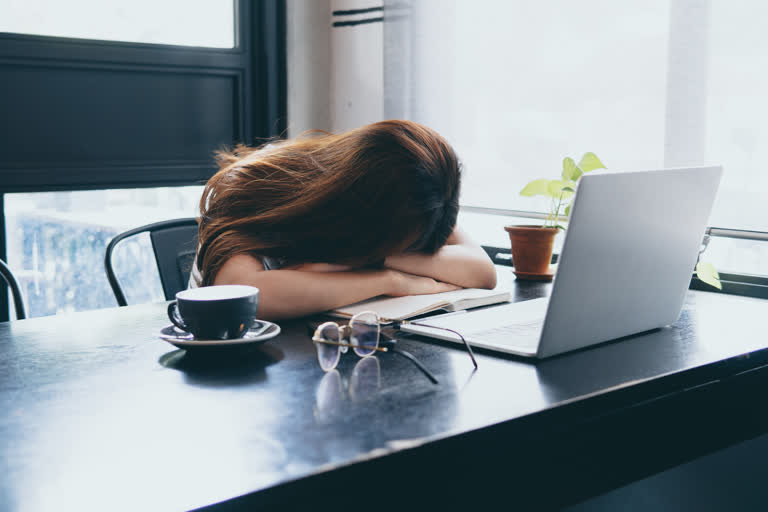Sleep is just not only about physical and mental rest, but it also helps in total body repair and reduces stress. Many times, our sleep is disturbed and we don’t find ourselves as relaxed as we want to. Especially in these tough times, where the world is facing a pandemic, and the future is full of uncertainties, stress and anxiety can be one of the reasons. We took an Ayurvedic perspective on sleep and asked Dr. Rajyalakshmi Madhavam, MD Ayurveda, Professor at AMD Ayurvedic Medical College, Hyderabad about the sleeping disorders and how to deal with it.
“Sleep is an important biological process and necessity for the body just like food, water, and air. During sleep, our body enters an anabolic state, that restores body tissues and finally Immunity. Healthy sleep can be measured by duration, quality, appropriate timing, and regularity”. For every human being, an adequate amount of sleep, i.e. 7-9 hours of sleep is usually recommended for both physical and mental wellbeing.
Effects of Disturbed Sleep
Along with all the other cons of lack of sleep, amidst the COVID-19 situation, it is our immunity that can be at stake. “There is a production of proteins in our body called cytokines when we are infected with virus, bacteria, or pathogens. Cytokines help in regulating immunity, which can be hampered due to lack of sleep. Also, the functioning of T-cells or fighter cells (which act against infections) is impaired if sleep is not adequate.”
For A Better Sleep
- Avoid Diwaswapna (Day time sleep), except in Greeshma ritu (Summer). It is always contraindicated. However, emaciated, elderly, or weak people can sleep during the daytime.
- Be active during the daytime. Practise relaxation techniques like Dhyana, Pranayama, Yoga, etc., whichever is suitable for you.
- Eat healthy food and avoid alcohol, caffeine, nicotine 6 hours before bedtime. Take light dinner 2-3 hours before sleeping.
- The bedroom and bed should be comfortable. The room should be dark, calm, cool, and pleasant. The bed should not be too spongy or too hard to sleep.
- Abhyanga (Massage) with medicated oils, Shirodhara (Pouring of medicated liquids on the forehead for the prescribed period) relieves stress and anxiety. It also improves the quality and quantity of sleep.
- Ashwagandha, Jatamansi, Yastimadhu, Brahmi, Jatiphal, Shankapushpi are good brain tonics and sedative in nature. They should be taken with the Physician’s advice only.
- Pleasant smell, listening to good music, keeping the mind calm, living without worry is always advisable in contemporary time.
- Padabhyanga (massaging feet) with Til/Sesame oil before going to bed enhances the quality of sleep.
- Bathing with lukewarm water and taking a small glass of lukewarm milk 1 hour before bedtime induces sleep.
- Decrease Screen time before going to bed.
Therefore, instead of taking medicines, it is better to change your lifestyle and eating habits. Better sleep will ensure better immunity and a relaxed state of mind, highly required in the current times.



